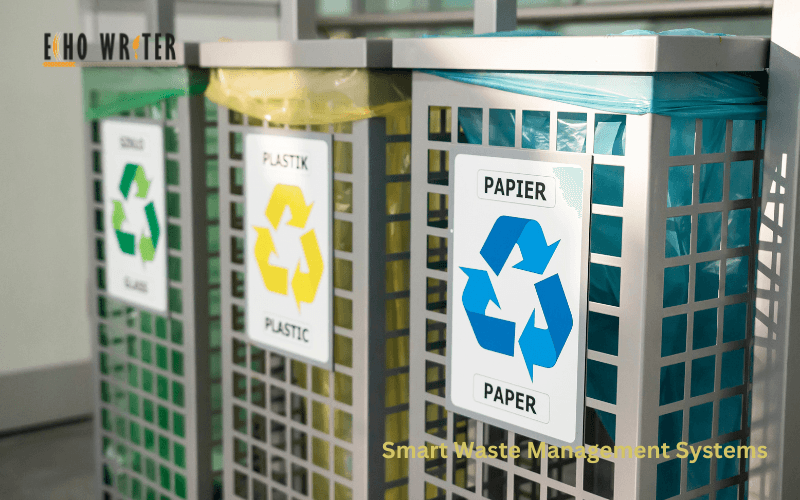Introduction
In this fast-changing industrial world, green tech has become an essential element of sustainable development. Green tech is another term for green technology—a new set of solutions for reducing the negative impact of human activity on the environment while at the same time increasing efficiency. From renewable energy to waste management, green tech is not just changing individual businesses but paving the way for a more environmentally friendly and sustainable world economy. Industries are reorienting their operations to more eco-friendly values and to the long-term sustainability vision by using green tech.
Why Green Tech is Critical for Industrial Transformation
Combating Climate Change
Green tech helps cut down the major greenhouse gases that lead to climate change. Industry usage of renewable energy, such as solar and wind power, significantly reduces their carbon footprint as part of efforts to fight climate change. This is significant because the world is always under massive pressure as extreme weather conditions increase and sea levels advance. Green tech is important for industrial advancement alongside environmental conservation, hence very crucial for future resilience.

Enhancing Resource Efficiency
Resource optimization is at the core of Green Tech adoption, which is currently being adopted by industries to minimize waste and maximize output. Businesses use advanced technologies such as efficient energy usage machinery and smart systems in manufacturing to reduce dependency on natural resources. By doing this, they benefit with cost-effectiveness and work towards achieving a circular economy: reduced waste and reused materials.
Key Benefits of Green Tech Across Industries
Reducing Operational Costs
The implementation of green tech sometimes goes hand-in-hand with preliminary investment; the long-run costs saved, however, tend to be immense. Take, for example, energy produced through renewable energy systems, which saves so much on electric utilities, while energy-efficiency technologies also save considerable costs in terms of repair works. Time will gradually have the resultant effect.
Boosting Brand Reputation
Green Tech signifies an organization’s commitment to being green, enhancing the business’s image with green consumers and stakeholders. Firms practicing environmentalism experience higher customer loyalty, better employee satisfaction, and more investment opportunities. This is the reason why adopting green tech has emerged as a strategic competitive advantage in markets.

Green Tech Innovations Transforming Industries
Renewable Energy Integration
Industries are fast embracing renewable energy sources that include solar panels and wind turbines for powering their respective operations. Innovations that include floating solar farms as well as advanced energy storage solutions make renewable energy more available and efficient. This transition therefore reduces the dependence on fossil fuels while helping industries realize sustainability targets with energy security.
Smart Waste Management Systems
With intelligent technologies such as AI-enabled recycling systems and biodegradable packaging, Green Tech has transformed waste management. This allows the industry to reduce waste as much as possible, to recycle its products properly, and thereby minimize contribution to landfills. Such smart waste management not only supports sustainability but also promotes compliance with tight environmental standards.

Challenges of Implementing Green Tech
High Initial Investment
One of the most important barriers to the adoption of green tech is the high cost involved in procuring and installing new technologies. Such investments are often paid off over a long period, but for small businesses, finding funds to meet these requirements is not easy. To overcome this, there is a need for government subsidies, financial incentives, and innovative funding models.

Resistance to Change
Cultural resistance at the organizational level is yet another factor that might hold up the adoption of green tech. Employees and other stakeholders will not be ready to let go of traditional methods or adopt new technologies that have been perceived as unsafe. Communication, training, and examples of success cases may be used to ease the barriers.
The Future of Green Tech in Industries
Green Tech and Digital Transformation
Integration with Green Tech will change industrial operations by infusing technologies such as IoT, AI, and blockchain. Real-time monitoring and predictive analytics will make them transparent while reporting, leading to high efficiency and effectiveness of solutions. It is expected that this convergence will result in smarter and more sustainable industrial ecosystems.
Policy and Public Support
Green tech is being adopted by introducing policies and incentives by the governments of the world. With tax breaks and subsidies, green tech is being made accessible to industries. Public awareness and demand for green products will help in speeding up this shift.
Innovation and Collaboration
Future opportunities for green tech come when companies, institutes of research, and even policymakers get along. Mutual collaboration would facilitate the unveiling of more impactful technologies, which would ultimately set the earth to be even greener. Such as carbon-capture innovations as well as sustainable supply chain innovations in industrial activity would play vital roles.
Conclusion
Green tech is not something that an industry can consider as a luxury or a discretionary item; rather, it has become an absolute requirement for survival and sustainability in this fast-changing world. The Green Tech drives the transformative change in various sectors with the aid of addressing environmental challenges, operational efficiency improvement, and fulfillment of ever-changing consumer needs. However, high costs and change resistance remain to be considered as a hurdle. As industries opt for green tech, it not only helps them lead a healthy planet but also places themselves ahead in the sustainable revolution as well.
FAQs
What is Green Tech, and how does it benefit industries?
Green tech refers to technologies that do the least damage to the environment and are therefore pro-sustainability. Its advantages for industries include reduced costs, increased efficiency, and an enhanced brand reputation.
What are the major challenges in adopting Green Tech?
Its main challenges are a very high cost of investment in its setup and the lack of organizational change.
How does Green Tech contribute to combating climate change?
Green tech reduces greenhouse gas emissions through renewable energy, energy-efficient systems, and sustainable waste management, directly addressing climate change issues.
What is the future of Green Tech in industries?
In the future, Green Tech will be integrated with digital tools, enhanced policy support, and collaborative innovation that creates smarter and greener industrial ecosystems.
Which industries are leading in Green Tech adoption?
The primary sectors that are adopting green tech include energy, manufacturing, construction, and transportation.




I loved as much as you’ll receive carried out right here. The sketch is tasteful, your authored material stylish.
Wow superb blog layout How long have you been blogging for you make blogging look easy The overall look of your site is magnificent as well as the content
I loved as much as you’ll receive carried out right here. The sketch is tasteful, your authored material stylish. nonetheless, you command get bought an nervousness over that you wish be delivering the following. unwell unquestionably come more formerly again since exactly the same nearly a lot often inside case you shield this hike.